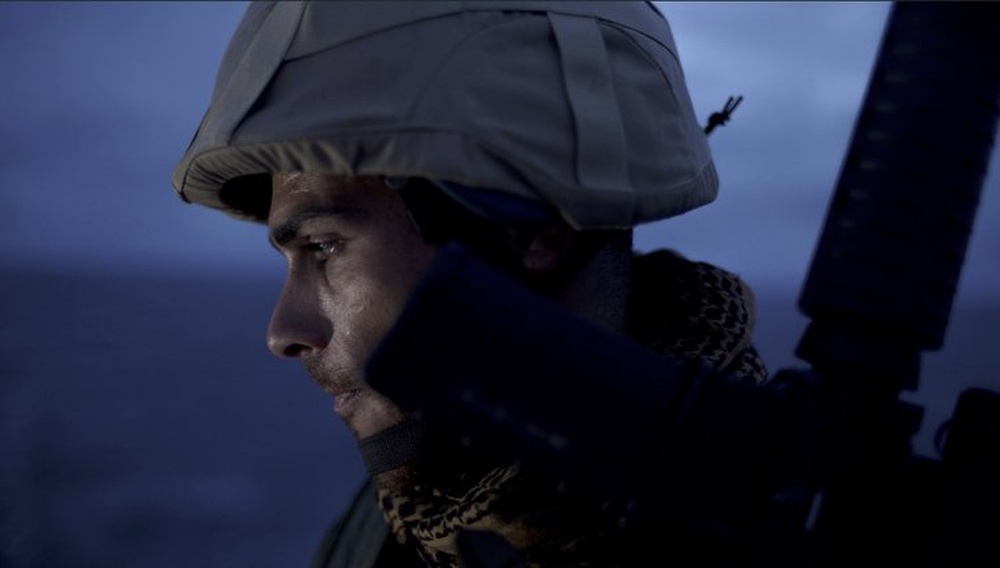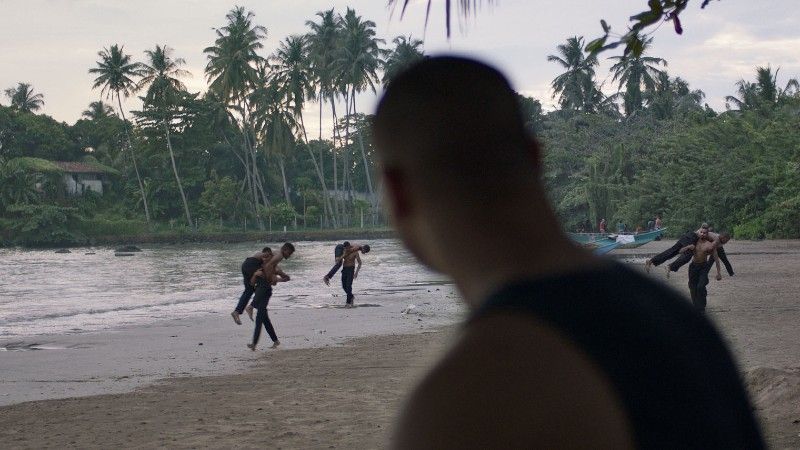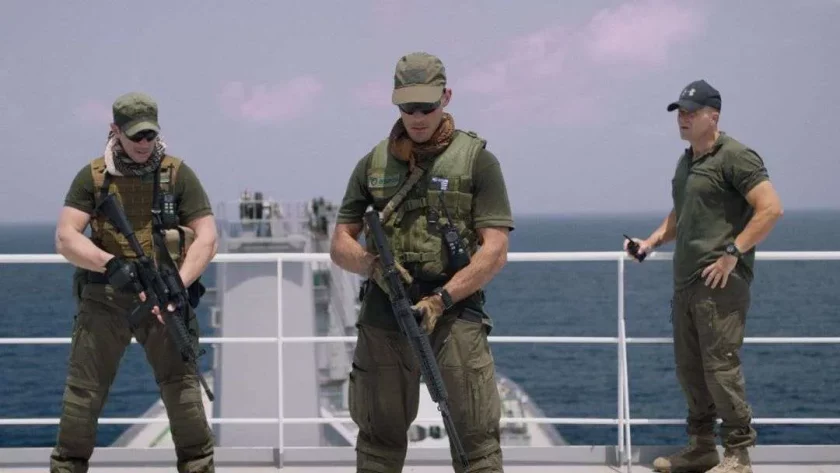The FilmSoc Journal is back for the 30th edition of the Raindance Film Festival, the largest independent film festival in the UK.
Aadesh Gupta reviews Dogwatch, George Rentis’ unconventional documentation of what the lives of mercenaries on the battlefield look like when the enemy is nowhere to be found.
The opportunity of war provides some soldiers with the means of achieving their heroic potential and finding some sense of meaning. However, the reality of war is of course far more disillusioning. Conflict bringing about unimaginable horrors has been showcased countless times in cinema, but what about the opposing circumstance? What if instead of being overwhelmed by chaos, the soldier experiences a lack thereof? He may train tirelessly for months in the hope of action, only to be faced with mundanity. This is the central premise of director Gregoris Rentis’ new documentary feature, Dogwatch – soldiers confronting inaction.

We follow three private mercenaries of different ages, with each one occupying an individual chapter in the film’s narrative. They are hired by vessels crossing a High-Risk Area on the Somali coastline for protection against piracy. The frequency of such incidents has diminished over time, leaving these maritime guards unfulfilled. Apart from a couple of comedic sequences that seem to be from a different film, the majority of the runtime here is patently serene. With the natural sparsity of the dialogue, our focus is directed towards cinematographer Thomas Tsiftelis’ gorgeously photographed images.
Framing his shots with clear intent, cinematographer Thomas Tsiftelis patiently examines his subjects and reveals behavioural nuances. The shallow depth of field in his close-ups functions particularly well, particularly in the sparring scenes. Here, the camera is brought remarkably close to the soldiers, blurring their movements and thereby rendering a sign of physical potency impotent. This, among other aspects of the editing (such as slow-motion), helps in achieving visual minimalism which, in turn, forms a meditative tone suitable for a mood piece. The film’s atmosphere is so calm that even the most trivial occurrences are depicted as recurring motifs. Through this, even the minuscule movements of eggs on a ship becomes just as piercing as the bullets being fired in battle.
In the post-screening Q&A, Rentis made it clear that he’s telling a very personal story when he clarified that the third mercenary in the film is his uncle. Both him and Tsiftelis talked about their desire to dismantle pop culture’s hypermasculine perceptions of the military; to look behind the exteriority of muscular machismo and assault rifles. Take for instance the one scene of action in an otherwise undisturbed runtime: a vessel is invaded, and security is deployed immediately. Formally inconsistent with the rest of the film, this sequence is shot from a POV angle like something out of an FPS game. It’s a burst of momentary yet alarming violence, unadulterated by any desire to villainise the enemy. This scene, albeit the most eventful in the film, forgoes any sense of adrenalized excitement and becomes just another mandatory procedure. Virility is present but never embellished. As mentioned prior, the film functions as a contemplation beyond peripheral masculinity that provokes thoughts about one’s inner experience.

Another pertinent point brought up in the Q&A was that maritime guards, when asked what they would do if they were born in Somalia, said that they would also become pirates to penalise corporations for water pollution. This clear display of empathy fits well with the film’s characteristic ambivalence. The real enemy is clearly far more elusive, and so it’s appropriate to give more attention to introspection than physicality. That’s not to say that stances on the latter are absent from Rentis’ work (as is evident in the beach training and bar dancing), but the intimate gazes and enduring silences speak far louder here.
It may be overly scarce on exposition, but Dogwatch’s combination of composer Matthew Barnes’ ethereal score and poetic imagery, from the vibrantly lit streets of Sri Lanka to simple dormitories, is spellbinding on its own. A final hypnotic frame of dolphins swimming effortlessly ahead of a ship’s turbulent bow waves gently ends this short feature on a note that feels unconventionally satisfying despite its lack of explicit information, just like the film itself.
Watch the trailer for Dogwatch here:




